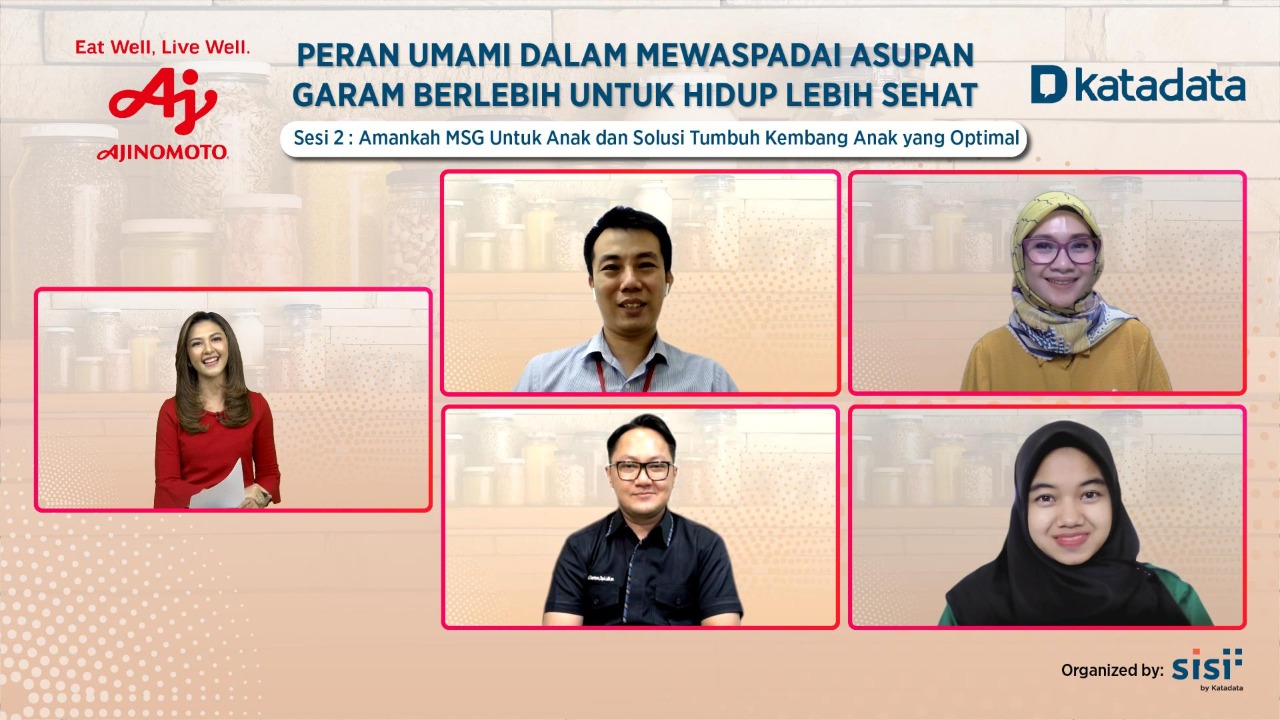Until now, the negative stigma related to the use of Monosodium Glutamate (MSG) or micin in foods which is rumored can cause stupidity is still popping up in the community. However, is it true that MSG or micin is not safe for the general public or children, and can cause stupidity?
PT AJINOMOTO INDONESIA (Ajinomoto) held a Webinar: "The Role of MSG for Optimal Child Development Solutions", as an effort to support Indonesian people to stay healthy by disseminating informative facts about the benefits of Umami Seasoning such as MSG.

This webinar presents dr. Ardi Santoso, Sp. A, M. Case. (Pediatrician at Kasih Ibu Hospital, Surakarta) as a resource person. According to him, as parents, especially mothers, of course we want to give children a food intake that is complete with nutrients and also has a delicious taste. However, sometimes I hesitate to use umami spices such as MSG as a flavor enhancer, for fear that the process of making the seasoning isn’t from natural sources.
Actually, parents often make mistakes in giving food, especially for babies (6 months) who are already able to get complementary foods (MPASI), from what I see, they don't add adequate like MSG for babies’ MPASI at all, so that the foods tend to be bland or have less-taste. In my opinion actually the risk for mothers is greater if they give minimal seasonings in their child's complementary foods, the result is that the child has no appetite,” said dr. Ardi when delivering material at the webinar session.
“The fact is that MSG is a flavor-enhancer or umami seasoning that is safe for consumption at all ages. MSG is well metabolized even in babies. The European Communities Committee as well as in a book by (Dien, Dieng, Nurhidayat (2018), IDI – MSG Review) state that baby also metabolize glutamate as efficient as adults, and the fact is babies start from his/her birth are familiar with the glutamate content of breast milk (ASI)," he continue.
According to dr. Ardi, the use of MSG in foods can also be used as a strategy for a low-salt diet. Because the sodium content in MSG is only 1/3 of the sodium content of ordinary salt. There have been many studies and scientific journals that explain this, for example in the research conducted by Jinap S & Hajep P. et al (2010).
Agree with dr. Ardi, Grant Senjaya - Public Relations Manager of PT AJINOMOTO INDONESIA, said that Ajinomoto is currently promoting the Salt Wisdom campaign which is in line with the recommendation of the Indonesian Ministry of Health regarding reducing the intake of Sugar, Salt, Fat in daily consumption.

“Through the Bijak Garam campaign that we are running, Ajinomoto wants to educate the public about the importance of a low-salt diet and invite Indonesian families to live healthier lives by reducing the intake or use of salt in food processing, but still being able to get a high taste. This campaign is also a testament to our commitment to continue to make a positive contribution to society, by improving the welfare and health of Indonesian families through high quality products and services. To view the details of the Bijak Garam menu, it can be accessed through our Dapur Umami website: https://www.dapurumami.com/page/bijak-garam," said Grant.
“For Ajinomoto, good nutrition is an important thing that we highlight and is an important capital for the growth of future generations. Children in Indonesia need good and complete nutrition for their growth and development. That way, the mental and physical development of children in Indonesia will be better so that they become a generation that will grow and develop," he continued
PT AJINOMOTO INDONESIA is committed to continuing to make a positive contribution to society, by improving the welfare and health of Indonesian families through high quality products and services that focus on delicacy and health.